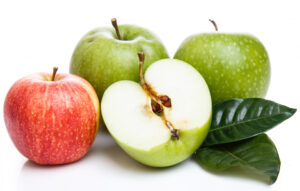Lung health is essential for overall well-being, as our lungs help deliver oxygen to every body part. A balanced diet can play a pivotal role in maintaining healthy lungs. While exercise, avoiding smoking, and limiting exposure to pollutants are critical factors, the foods we eat can also support lung function or, in some cases, harm it. In this blog, we’ll explore the best and worst foods for lung health so you can make informed decisions for optimal respiratory well-being.
Best Foods for Lung Health
Certain foods contain nutrients that help reduce inflammation, boost immune function, and promote lung health. Incorporating these foods into your diet can support proper lung function and help protect your respiratory system from damage.
1. Leafy Greens
Leafy greens like spinach, kale, and arugula are rich in antioxidants, such as beta-carotene and vitamins C and E. These nutrients help neutralize harmful free radicals that can damage lung tissue and cause inflammation. Additionally, the magnesium found in leafy greens promotes respiratory muscle function, which is crucial for proper breathing.
2. Fatty Fish
Fatty fish like salmon, sardines, and mackerel are rich in omega-3 fatty acids. These essential fats have anti-inflammatory properties, which can reduce airway inflammation, a common issue in conditions like asthma and chronic obstructive pulmonary disease (COPD). Omega-3s also support overall lung function by promoting heart health, ensuring oxygen is efficiently circulated throughout the body.
3. Apples
Apples contain high levels of quercetin, an antioxidant that has been shown to reduce the risk of lung diseases, including asthma and bronchitis. Studies suggest that the regular consumption of apples is linked to better lung function and a lower risk of respiratory issues.

4. Berries
Berries such as blueberries, strawberries, and raspberries are antioxidant powerhouses. These tiny fruits are rich in vitamin C and flavonoids, which help protect lung cells from oxidative stress. Berries can also reduce inflammation and improve lung capacity, making them an excellent addition to your lung-friendly diet.
5. Ginger
Ginger is well-known for its anti-inflammatory and detoxifying properties. Consuming ginger can help break down mucus, making it easier to expel from the lungs. It may also help relax airway muscles, improving breathing in those with respiratory conditions like asthma.
Worst Foods for Lung Health
Just as some foods can support lung health, others can have the opposite effect, promoting inflammation and mucus production, which can impair lung function. Reducing or avoiding these foods is key to maintaining healthy lungs.
1. Processed Meats
Processed meats, such as bacon, sausage, and deli meats, contain high levels of preservatives, particularly nitrates, which have been linked to an increased risk of lung diseases like COPD. These foods can cause lung inflammation and reduce their ability to function properly over time.
2. Sugary Drinks
Sugary drinks, including sodas and sweetened fruit juices, contribute to systemic inflammation, which can negatively impact lung health. High sugar intake has also been associated with a higher risk of developing respiratory conditions such as asthma.
3. Fried Foods
Fried foods like french fries, fried chicken, and doughnuts can be detrimental to lung health. These foods are typically high in unhealthy fats, which can increase inflammation in the body and lead to the production of mucus in the airways. This buildup of mucus can obstruct breathing, especially for those with preexisting lung conditions.
4. Dairy Products
While dairy products like milk, cheese, and yoghurt are nutritious, they can cause mucus production in some individuals. For people with respiratory issues, excessive mucus can make it more difficult to breathe. Limiting dairy intake may help reduce mucus buildup and improve lung function for those prone to respiratory problems.
5. Refined Carbohydrates
Refined carbohydrates, such as white bread, pastries, and pasta, have a high glycemic index, which can cause blood sugar levels to spike. These foods promote inflammation and may worsen respiratory symptoms. Opt for whole grains instead, which provide more nutrients and help regulate blood sugar levels.
Conclusion
Your diet plays a significant role in maintaining healthy lungs. Incorporating antioxidant-rich, anti-inflammatory foods like leafy greens, berries, and fatty fish can help protect your lungs and improve their function. On the other hand, limiting processed meats, sugary drinks, and fried foods can reduce the risk of inflammation and lung damage.
By making smart food choices, you can breathe easier and support your lung health for years to come. Consider pairing these dietary changes with regular exercise, avoiding pollutants, and refraining from smoking to ensure your lungs remain in top condition.









